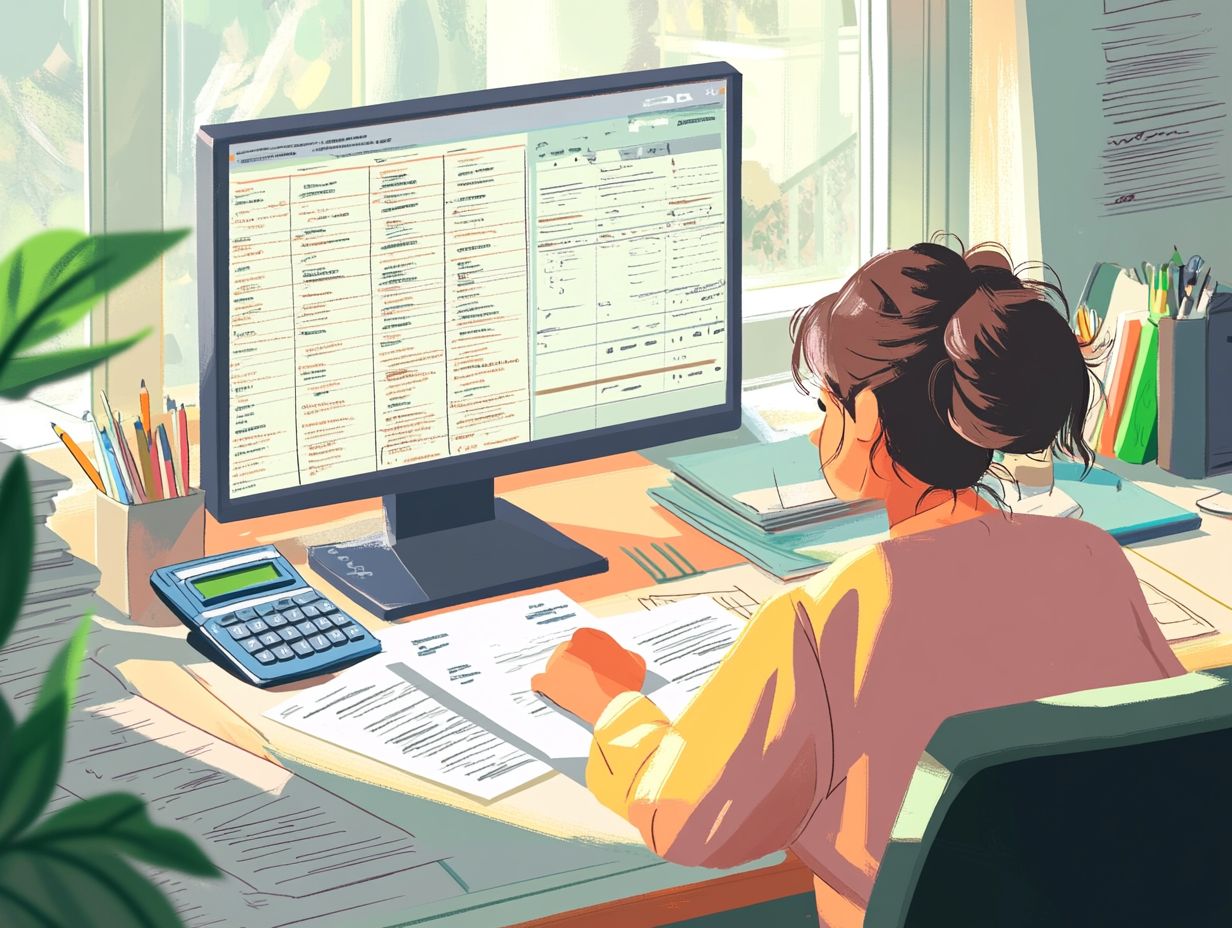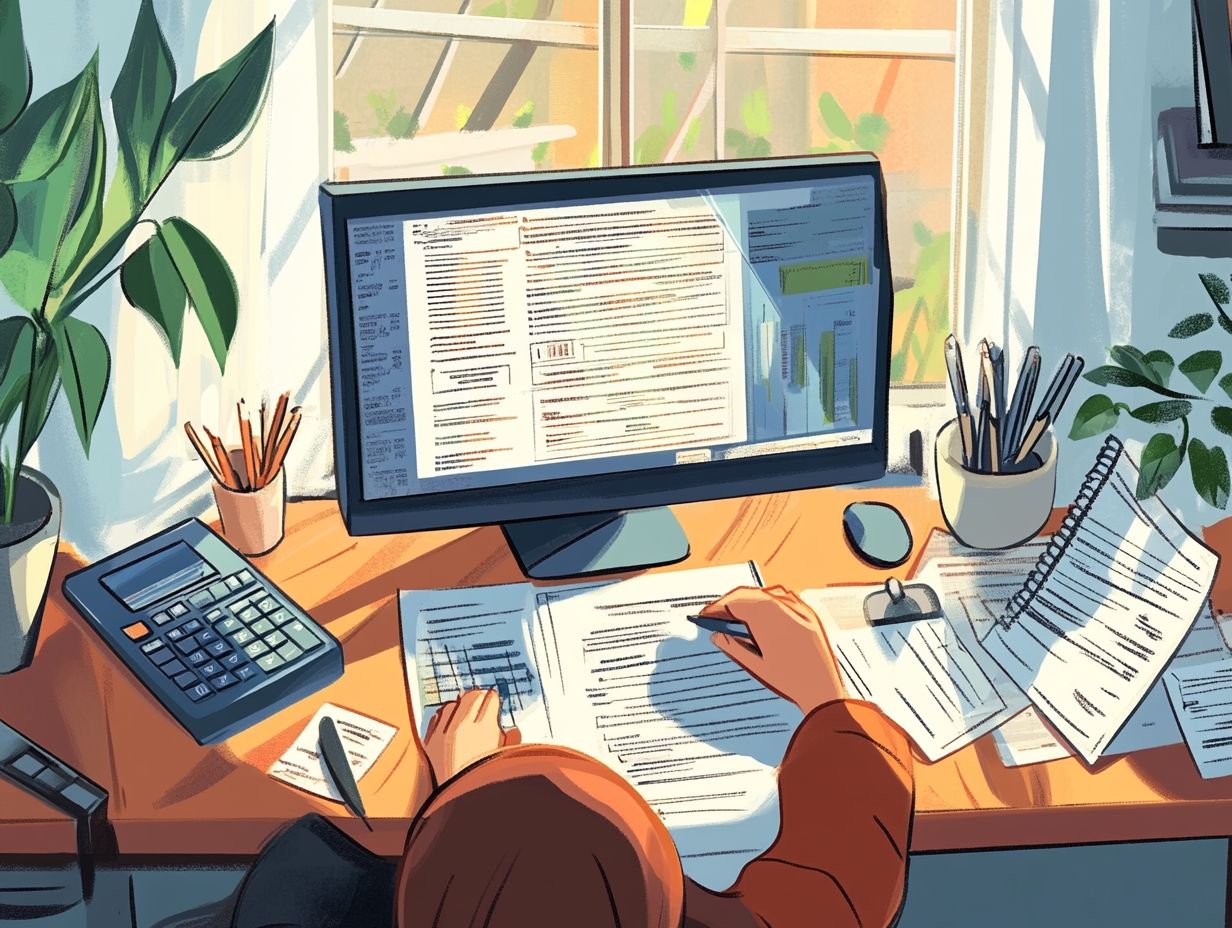The Process of Renewing Your High-Risk Insurance
Navigating high-risk insurance can indeed feel overwhelming. Yet, grasping the renewal process is crucial for preserving the coverage you require.
This article will help you understand high-risk insurance and why it s important. It outlines the significance of renewing your policy and the steps you need to take during the renewal process.
From collecting necessary information to comparing rates and securing better coverage, this guide will walk you through each phase. You ll approach your decisions with confidence.
Continue reading to empower yourself with the essential knowledge you deserve.
Contents
- Key Takeaways:
- Understanding High-Risk Insurance
- Reasons for Renewing High-Risk Insurance
- Steps to Renewing High-Risk Insurance
- Tips for Renewing Successfully
- How to Get Better Rates and Coverage
- What to Look for in a High-Risk Insurance Policy
- Frequently Asked Questions
- What is high-risk insurance?
- Why would I need to renew my high-risk insurance?
- How do I renew my high-risk insurance?
- Will my premium change when renewing my high-risk insurance?
- What happens if I don’t renew my high-risk insurance?
- Is it possible to lower my risk level and insurance premiums?
Key Takeaways:

- Understanding what high-risk insurance is and why it s needed is essential for proper renewal.
- Renewing high-risk insurance may be necessary due to changes in your risk profile or at the end of your policy term.
- When renewing high-risk insurance, gather all necessary information, compare policies and rates, and consider renewing or switching providers to get the best coverage and rates.
Understanding High-Risk Insurance
Understanding high-risk insurance is essential for you, whether you’re a business owner or an individual, given the unique challenges that come with risk transfer and managing risks that standard insurance often fails to address.
This category includes various insurance policies tailored to protect those deemed high-risk. It s vital to grasp the core principles of available coverage options, the insurance companies specializing in this niche, and the underwriting process that dictates eligibility and pricing.
What is High-Risk Insurance?
High-risk insurance encompasses specialized policies for individuals or businesses considered to pose a greater risk to insurance carriers. Factors such as poor driving records, extensive claim histories, or specific industry exposures often contribute to this classification.
Your lifestyle choices can also play a role. Engaging in high-risk hobbies or having medical conditions that increase claims likelihood can affect your classification.
A variety of coverage options exists for high-risk situations, including:
- Auto insurance for drivers with a history of traffic violations.
- Health insurance for those managing chronic illnesses.
- Liability insurance for businesses operating in hazardous sectors.
Premiums for these specialized policies are typically higher, calculated based on the level of risk involved. This includes past behaviors, industry standards, and overall claim frequency associated with similar profiles. Understanding these factors enables you to navigate your insurance needs with greater confidence and clarity.
Reasons for Renewing High-Risk Insurance
Renewing high-risk insurance is an important choice for you as a policyholder. You need to understand the renewal process well, evaluate the offers you receive, and ensure that your insurance terms reflect your current risks and coverage needs.
Many things can affect whether you need to renew your insurance, such as shifts in risk assessment, your claims management history, and the competitive landscape of offerings from various insurance companies.
When and Why You Might Need to Renew

Consider renewing your high-risk insurance as your current policy nears expiration. Significant changes in your risk profile can impact coverage limits and insurance requirements.
For example, if your business expands operations, introduces new products, or undergoes a change in ownership, these factors can elevate risk and warrant reassessment of your existing policies. Additionally, personal circumstances like purchasing a new property or acquiring valuable assets may necessitate increased coverage.
Don t wait until it s too late act now to protect yourself by staying proactive in these situations. This ensures you maintain adequate protection against potential liabilities, safeguarding against unexpected events that could lead to severe financial repercussions.
Steps to Renewing High-Risk Insurance
Renewing high-risk insurance requires you to navigate a few essential steps. Begin by submitting your insurance application and gathering all necessary renewal documentation.
You might also consider collaborating with an insurance broker who can help you identify the best coverage options and discounts available in the market. This strategic approach ensures that you secure the most favorable terms for your renewal.
Gathering Necessary Information
Gathering the necessary information for your high-risk insurance renewal is crucial. This process involves compiling renewal documentation, completing the insurance application, and providing insights into your past claims management and coverage evaluation.
This data shapes a comprehensive renewal proposal and enables insurers to accurately assess the risk associated with you as a policyholder. For instance, reviewing your prior claims history reveals the frequency and severity of incidents, which can significantly influence decisions about your insurance. Understanding your current coverage limits is essential as it helps determine whether adjustments are needed to meet your evolving needs.
By documenting all pertinent details, you can greatly influence the renewal terms, steering toward a more favorable insurance outcome.
Comparing Policies and Rates
Comparing policies and rates is a crucial step in your renewal process. It allows you to assess insurance premiums, evaluate offerings from various companies, and pinpoint the best coverage options in a competitive market.
Taking the time to analyze the differences in coverage and costs helps you avoid overpaying for services you may not need, while ensuring you have the protection you deserve. Market conditions such as economic shifts or changes in laws can significantly impact premium rates. That’s why staying informed and proactive is essential.
Understanding the nuances of various coverage options allows you to make a well-informed decision, striking a balance between affordability and comprehensive protection tailored to your specific needs. The effort you invest in this process pays off, safeguarding your financial well-being against unexpected expenses.
Renewing or Switching Providers

When faced with a renewal proposal, you must weigh the options of renewing with your current provider or considering a switch to a new insurance carrier, which can save you a lot of money and improve your coverage options.
Several factors will influence this important decision, including the process if your policy isn’t renewed, which might catch you off guard if not fully understood. It s essential to review the reasons your current provider may choose not to renew, such as evolving risk assessments or premium hikes.
Partnering proactively with a new insurance broker can open the door to many advantages, such as customized policy options and attentive service tailored to your needs.
To evaluate potential cost savings, it s crucial to carefully analyze various quotes, policy limits, and coverage types. By diligently comparing these elements, you can make informed choices that enhance your financial standing and provide you with invaluable peace of mind.
Tips for Renewing Successfully
Successfully renewing high-risk insurance demands a strategic approach on your part. Actively seek out insurance discounts, critically evaluate your coverage options, and foster a proactive partnership with your insurance providers.
This collaboration will enhance your risk control efforts and optimize your overall insurance experience.
Start your renewal process today to secure the best coverage at an affordable rate!
How to Get Better Rates and Coverage
To secure better rates and coverage during your renewal process, actively engage with your insurance agents, research the available coverage options, and understand the market dynamics that influence insurance premiums.
Dive into market research now to uncover the best deals! By pinpointing discrepancies among different providers, you can compare the features of various policies.
Open communication with your insurance agents can provide valuable insights. These professionals often possess knowledge about upcoming promotions or changes in underwriting rules that could work in your favor.
By leveraging your existing relationships with agents, you can facilitate negotiations and receive personalized advice along with potential discounts that aren t widely advertised.
What to Look for in a High-Risk Insurance Policy
When evaluating a high-risk insurance policy, consider coverage limits, insurance requirements, and the efficiency of claims management processes, as well as the renewal terms that might impact your future coverage.
Don t overlook the potential risks tied to the specific activity or asset at hand; these can significantly influence your premium rates and available options. Understanding how these factors interact is key to making informed decisions.
It s essential to analyze the insurer s financial stability and customer service reputation, ensuring they can handle claims efficiently when you need them most.
By grasping the full scope of a policy s provisions and any exclusions listed, you ll gain clarity and be better equipped to find the right fit that ensures adequate protection without jeopardizing your financial security.
Frequently Asked Questions

What is high-risk insurance?
High-risk insurance is a type of coverage offered to individuals considered more likely to make a claim. This could be due to a poor driving record, previous insurance claims, or a history of high-risk behavior.
Why would I need to renew my high-risk insurance?
Most high-risk insurance policies have a limited term and need periodic renewal. This allows the insurance company to reassess the level of risk associated with insuring you and adjust the premium accordingly.
How do I renew my high-risk insurance?
The process of renewing your high-risk insurance varies by provider. Typically, you will receive a renewal notice via mail or email with instructions. You may also be able to renew online or over the phone with your insurance agent.
Your premium may change upon renewal, depending on factors like your driving history, any new claims or violations, and overall shifts in the insurance market. It’s crucial to review your renewal notice and discuss any changes with your insurance agent.
What happens if I don’t renew my high-risk insurance?
If you do not renew your high-risk insurance before the expiration date, your coverage will lapse, leaving you uninsured. This can lead to legal and financial consequences if you are involved in an accident or face other claims.
Absolutely! You can lower your risk level and save on premiums over time. Maintain a clean driving record, avoid accidents and claims, and work on improving your credit score to qualify for lower-risk insurance options with better rates. Discuss your options with your insurance agent.





